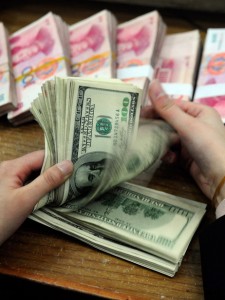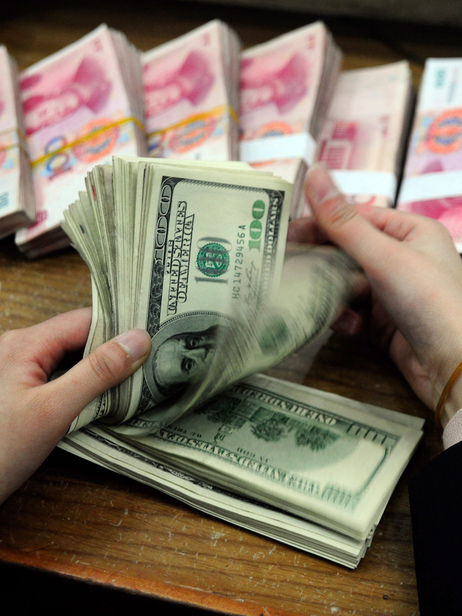
(AFP Photo)
By Hossam Mounir
Importers are still demanding the availability of dollars to be able to import food, medicine, intermediate goods and production requirements, according to financial managers at banks. This comes despite the weekly liquidity pumped by the Central Bank of Egypt (CBE) to cover these demands by importers.
Some statistics indicate that, since the start of 2015 until Thursday, the CBE pumped approximately $4.8bn into the market. Of this amount, $3.3bn of this amount acts as revenues of the dollar bids pumped four times a week by the CBE, whilst $1.501bn was through the dollar interbank mechanism. The CBE reactivated this service after its suspension for more than two years.
“Despite the huge amount of dollar liquidity pumped by the CBE, banks did not manage to cover all demands for foreign currency needed to import basic goods,”according to Hany Mahfouz, Deputy Chairman of Treasury in the Arab Investment Bank (AIB).
Mahfouz said that dollar liquidity pumped by the CBE served only to ease the burden of importers on banks, but it did not cover all demands for foreign currency.
He said that demands for dollars to import basic products, such as food, medicine, intermediate goods and production requirements, without including entertainment products, are still in place.
He added that, with Ramadan approaching, consumption will rise. As a result, demands to open documentary letters of credit are increasing, to import meat, poultry, and fish, among others.
Haitham Abdel-Fattah, Head of the Treasury in the Industrial Development and Workers Bank of Egypt, said: “The CBE pumps dollars into other banks to provide more foreign currency in the market to help them cover clients’ demands for dollar.”
Ahmed El-Khouly, Head of Treasury at Housing and Development Bank concluded by saying: “The latest dollar tenders offered by CBE played an important role in easing the crisis of the pending demands in banks. However, other unmet demands are still in place.”


